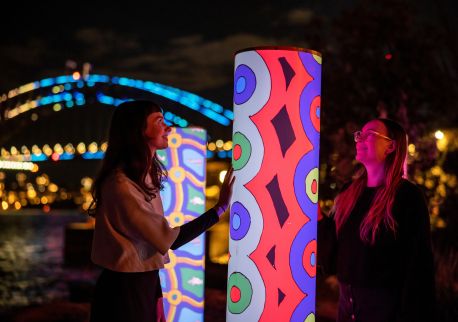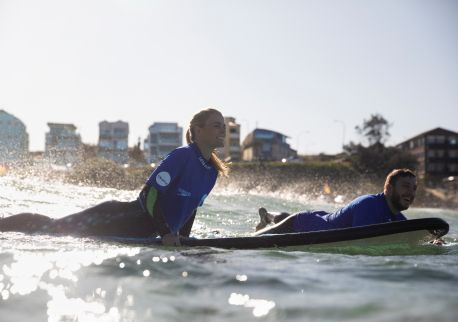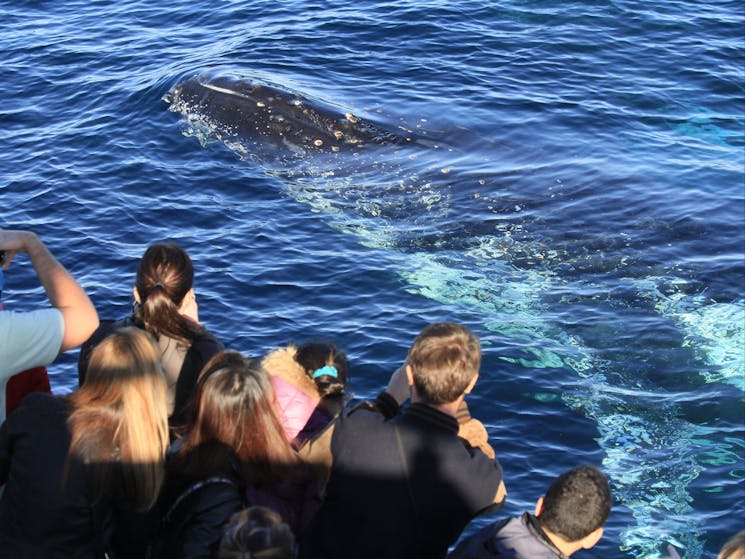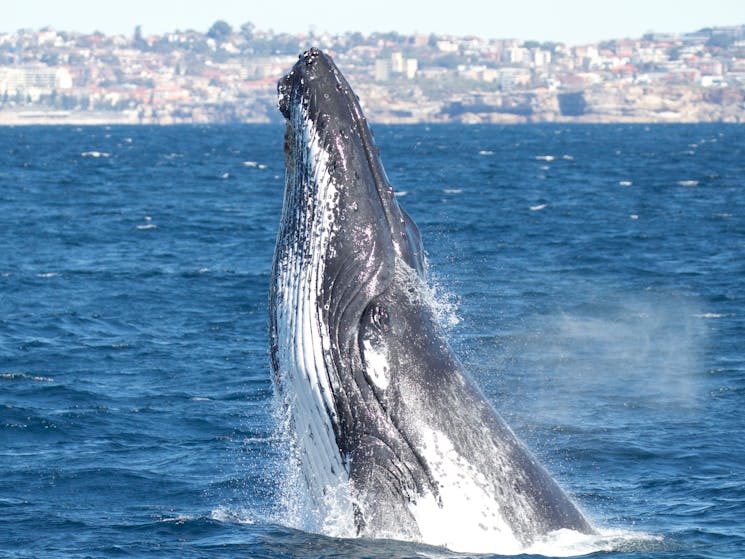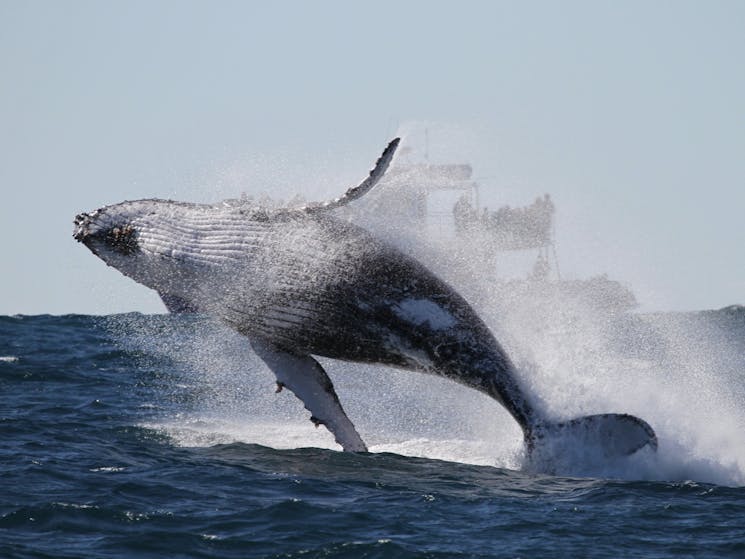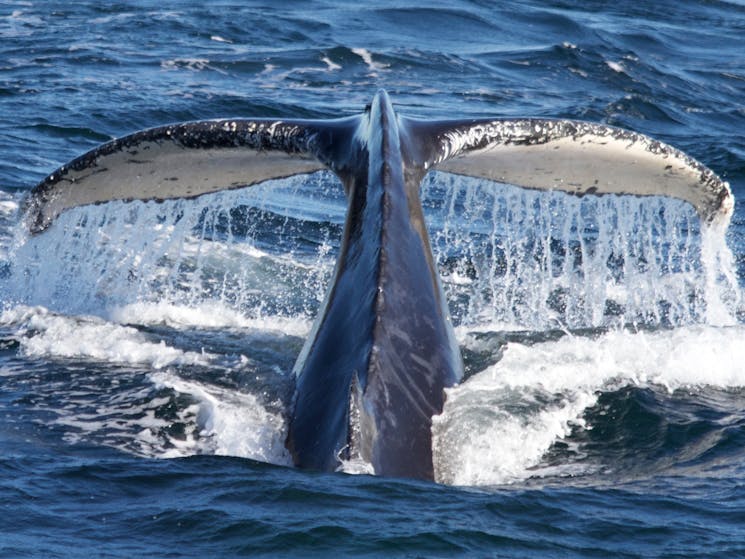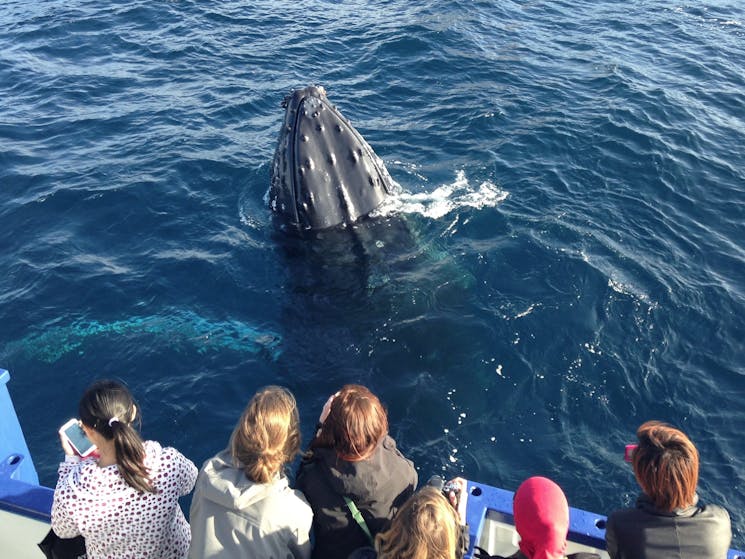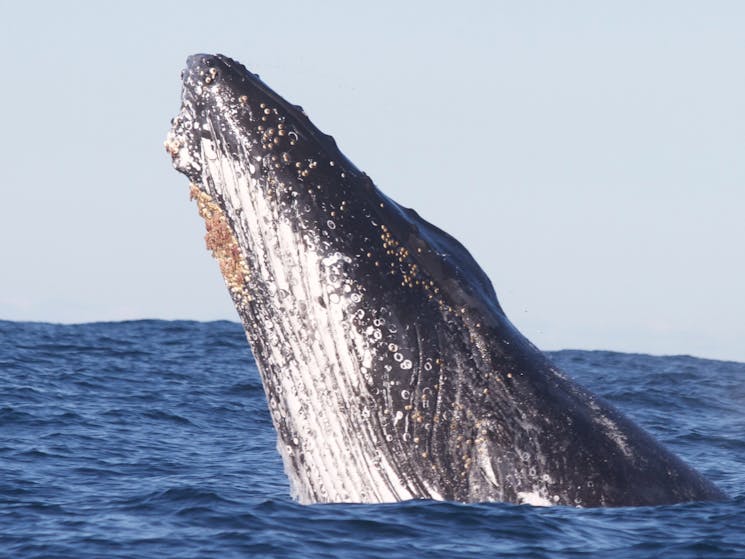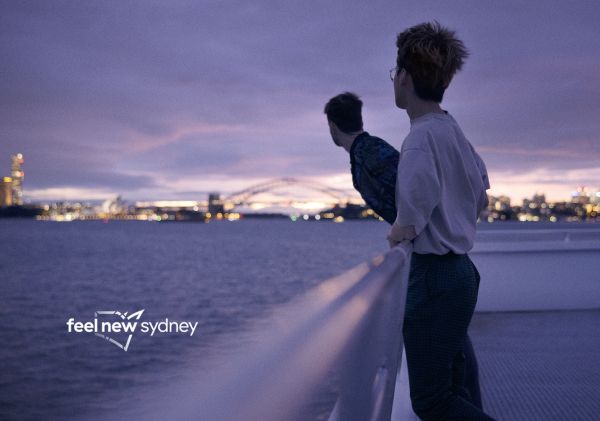Sydney Whale Watching Cruise - Darling Harbour
Overview
Our Sydney cruises depart from Darling Harbour and pass many of Sydney's famous landmarks on your way out the Heads to take you whale watching. On weekends the Harbour is alive with colourful sailing boats and your cruise will take you past Luna Park, the Harbour Bridge, Circular Quay, Sydney Opera House, Kirabilly House, Fort Denison, Bradley's Head, the mansions of Rose Bay!
Once out past the Heads the fun really starts as they start to look for the wonderful Humpback Whales migrating past.
Whilst all efforts will be made to ensure that your whale watching cruise is an enjoyable one it is important to remember that these whales are wild animals. They do not perform on cue! A range of whale behaviours may be viewed including fluke up dives, tail slapping, pectoral fin slapping, spy hopping, breaching, tail throws. We are committed to minimising the disturbance that our whale watching cruises make to the whales we are watching. Our crew will provide informative commentary during the cruise and are always happy to answer any questions you may have.
Cruises depart daily mid May to early August.
Accessibility
Allows a person's carer free entry into participating venues and events
Actively welcomes people with access needs.
Advise tour guides of the access needs of guests at the time of booking (includes pick up and drop off requirements)
Ask all visitors if there are any specific needs to be met
Caters for people with sufficient mobility to climb a few steps but who would benefit from fixtures to aid balance. (This includes people using walking frames and mobility aids)
Offer a range of contact methods for receiving complaints
Offer multiple options for booking - web, email, phone
Train your staff in communicating with people with learning or behavioural challenges
Train your staff in disability awareness
Welcomes and assists people who have challenges with learning, communication, understanding and behaviour. (includes people with autism, intellectual disability, Down syndrome, acquired brain injury (ABI), dyslexia and dementia)








